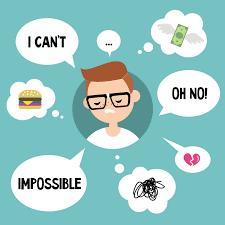3 Steps to Reduce Anxiety & Depression — Because in Kingwood, Texas, Mental Health Matters
If you’re living in Kingwood, Texas and feeling the pressure of anxiety or depression—whether you’re a teen or an adult—you’re not alone and you don’t have to go it alone. At our practice, we offer online counseling and in-person counseling, tailored for teens and adults, with affordable rates because mental health matters for everyone.
Let’s dive into three actionable steps you can take now to reduce anxiety and depression, followed by resources and when to consider a higher level of care.
Step 1: Move Your Body, Calm Your Mind
Physical movement doesn’t just benefit your body—it has a reliable effect on your brain and mood. According to the Centers for Disease Control and Prevention, anxiety and depression affect how we think, feel and act, including how we handle stress. CDC
Here’s how to put it into action:
Choose a movement you enjoy: a brisk walk in Kingwood’s trails, a light bike ride, or an online group class.
Commit to at least 20 minutes, 3-4 times per week.
Pair it with deep breathing: inhale 4 seconds, hold 2 seconds, exhale 6-8 seconds.
Use it as a switch-moment: when worry or sadness shows up, pause and move.
Physical activity helps regulate stress hormones, improves sleep, boosts mood, and supports you whether you’re working with a counselor online or in-person.
Step 2: Structure Your Day, Create Predictability
Anxiety often thrives on unpredictability. Depression thrived on lack of activity and meaning. You can fight both with structure and small wins.
Here’s what to do:
Create a simple daily schedule: wake, eat, work/learn, move, wind down—stick to consistent times.
Block at least one meaningful activity each day (e.g., call a friend, short walk, hobby).
Use micro-goals: e.g., “Today I will journal for 5 minutes” or “I will check in with my mood at 8 pm”.
Practice the “three-good-things” at the end of the day: write down 3 things that went well (big or small).
This structure gives your brain cues that the day is manageable and purposeful. It supports both teens and adults, whether you’re meeting with a counselor on site or via telehealth.
Step 3: Connect, Express, Seek Support
No one thrives alone—community and connection matter. The World Health Organization underscores that mental health exists on a continuum and many people recover with appropriate support. World Health Organization
Make connection a daily habit:
Reach out to one person each day—even a text to a friend or family member.
Express how you feel—putting feelings into words reduces their intensity.
Use professional support: whether online counseling or in-person sessions. If you’re a teen, get parent/guardian involved; if adult, share your goals with your therapist.
Explore external psychoeducational resources. For example:
General mental health care tips: “Caring for Your Mental Health” by the National Institute of Mental Health. National Institute of Mental Health
Statistics and information about anxiety and depression: “Mental Health Conditions: Depression and Anxiety” (CDC). CDC
Resource hub: Substance Abuse and Mental Health Services Administration (SAMHSA) “Find Help” site. SAMHSA
Connection + expression + professional support = a powerful triad in reducing anxiety and depression.
When to Consider Higher Levels of Care
It’s wise to know when self-help and outpatient counseling aren’t enough. Recognizing those signs means you get help early. The Anxiety and Depression Association of America explains that “level of care” means varying intensities of services—from regular counseling to full inpatient treatment. ADAA
Here are local options accessible from Kingwood:
Kingwood Pines Hospital (Kingwood, TX) — inpatient & outpatient services for children, teens & adults. Kingwood Pines Hospital+1
West Oaks Hospital (Houston area) — inpatient & outpatient programs for children, adolescents & adults. West Oaks Hospital
Cypress Creek Hospital (Houston, TX) — full range of inpatient/outpatient psychiatric services for adolescents and adults. cypresscreekhospital.com
If you notice any of the following, seek a higher level of care:
Suicidal thoughts or behaviors, self-harm.
Inability to function in daily life (school, work, self-care).
Severe drops in mood, sustained panic, or psychotic symptoms.
High risk behaviors, substance use out of control, or safety risk to self/others.
Early intervention often leads to better outcomes.
In Summary
In the Kingwood-area, affordable and accessible support is available—whether you choose online counseling from home or in-person counseling in our community. Teens and adults both need tools and support to manage anxiety, depression and stress.
Here are your 3 steps again:
Move your body + breathe deeply.
Structure your day + build small wins.
Connect with others + express feelings + access professional support.
And remember: if the symptoms escalate or you’re struggling daily, reach out to one of the higher level care facilities listed above. You don’t have to wait.




It’s helpful to know that certified mental health counselors are able to provide guidance and support. Recently, I’ve felt like I’m alone, and all the things I used to enjoy have become boring to me. That’s why I think I’d use some professional help to talk about what’s happening to me, so I’ll follow your advice right away.
It’s good to know that we’d seek referrals and recommendations from trusted sources before choosing a mental health therapist. My sister’s looking for a therapist to help treat her depression, so next week, she’d like to speak to a few therapists before choosing one. That’s why I’m positive that she’d benefit from reading your post about mental health therapists.